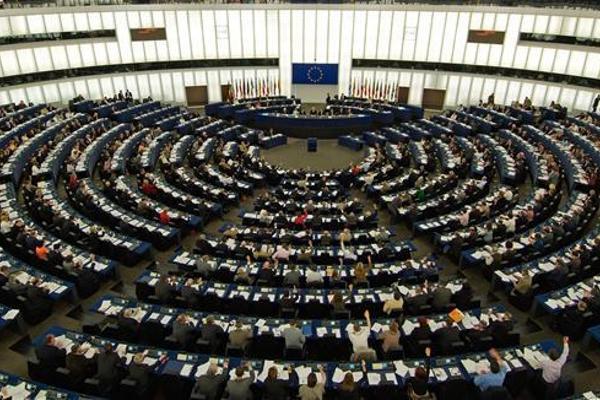EU lawmakers criticize Turkey over press freedom
STRASBOURG


Meeting in Strasbourg, the parliamentarians passed a resolution calling on Turkey to “narrow the scope of emergency measures, so that they can no longer be used to curtail freedom of expression.”
They asked the EU’s foreign service, the European External Action Service, to continue monitoring the implications of the ongoing state of emergency to ensure Ankara did not use the “broadly defined Turkish anti-terrorism legislation” to punish journalists and others.
Turkey last week extended its state of emergency, declared in the wake of the coup at-tempt on July 15, for another 90 days. At least 32,000 people have been arrested since Ju-ly, among them soldiers, police officers, teachers, members of the judiciary and the press.
According to the latest figures from watchdog group Reporters Without Borders (RSF), Turkish authorities have shut down at least 125 media outlets in recent months.
More than 2,500 journalists have lost their jobs due to the closures, and at least 130 journalists are currently in prison, more than in China or Iran. According to the Turkish Journalists’ Association, the journalists have been denied the right of access to a lawyer and are kept in inhumane conditions.
“Turkey has become the world’s biggest prison for journalists,” said Julie Majerczak, head of the RSF Brussels office. In its latest World Press Freedom index, RSF ranked Turkey 151 out of 180 countries – and, as Majerczak pointed out, the ranking was made before the at-tempted coup.
Speaking with DW by phone from Turkey, Human Rights Watch Director Emma Sinclair-Webb said Turkey has “grossly misused its terrorism legislation to restrict freedom of asso-ciation and expression.”
She said the parliament’s resolution was very timely, in light of the continuing crackdown.
During the debate in Strasbourg ahead of the resolution, several lawmakers spoke out against the EU’s continued negotiations with Turkey over EU membership, pointing out that Ankara’s record on press freedom and human rights “was not exactly great even before the coup attempt.”
But Sinclair-Webb said that continuing a “sincere engagement with Turkey is very im-portant,” given the ongoing discussion on the refugee deal and other political, cultural and economic fronts.
“Europe has every interest in Turkey being a rights-respecting country on its borders,” she said.
Meanwhile, a total of 33 journalists and writers have organized an autograph session in Istanbul’s Beyoğlu district in order to show solidarity with the imprisoned writer Aslı Erdoğan and linguist Necmiye Alpay. The writers and journalists also called for solidarity with all imprisoned writers and journalists.
